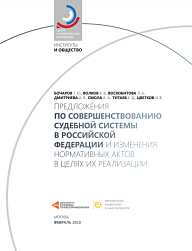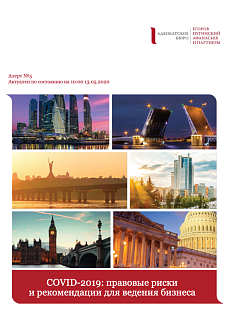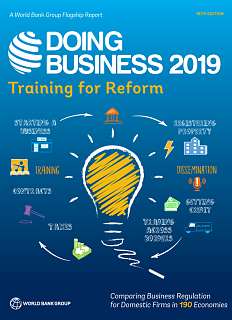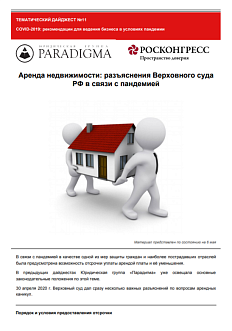The report was the result of a long work, which was conducted in cooperation with the Supreme Court of the Russian Federation and leading representatives of the legal community.
While proposing measures to improve the judicial system, the authors of the report focus not on ideal representations or external borrowings, but on a problem-based approach. Ignoring this approach and attempts to automatically transfer foreign experience often led to unpredictable results.
The proposals discussed are aimed at solving a key problem hampering the effective functioning of the judicial system distrust of institutions protecting rights of citizens. Despite the positive dynamics of recent years (share of Russians who positively assess the work of the courts is growing, and the share of those negatively assessing this work is falling), the level of negative assessments is insignificant, but still prevails (see Fig. 1). Most notably, distrust of judicial institutions affects the investment climate in the country.
Fig. 1. Public opinion on courts and judges

Source: Public Opinion Fund. Dominants Project, N=1500.
The Institute for the Rule of Law conducted a series of diagnostic empirical studies. As a result, it was possible to identify the problems of a high burden on judges, including bureaucratic, poor quality and lack of transparency in judiciary personnel selection, excessive repressiveness and weak control over the prosecution, etc. The following data, summarized over the past five years, testify to weak judicial control over the investigation and the presence of the accusatory bias: in 91% of cases the court satisfies the inquiries of the investigating authorities for preventive measures in the form of pre-trial detention and, on average, the judge acquits once in seven years.
Thus, the authors of the report focus on three areas of transformation: improving skills of judicial personnel, selection and appointment of judges; overcoming organisational limitations and consolidating the independence of judges; reducing the burden and streamlining the litigation.
Measures to improve skills of judicial personnel, selection and appointment of judges:
-
To establish a uniform permanent independent Federal Judicial Centre.
-
Appoint judges based on the results of training and examinations.
-
To abolish the requirement of compulsory higher legal education for secretaries of court sessions and court registrars.
At the same time this position should be excluded from the list of positions which give legal experience.
-
To empower judge assistants with procedural functions (preparation of draft judgments, elucidation of rights and obligations to the parties, actions for settlement of disputes, requisition of evidence).
-
To increase actual wages of the employees by half or up to the average level in the region, etc. Measures to reduce organisational restrictions and strengthen the independence of judges:
-
To change the procedure for appointing chairmen of courts introduce the procedure for election or nomination of a candidate for chairman by the court on the basis of preferential voting of the court members.
-
To limit the tenure of the chairman appointment to 4 years and not more than two consecutive terms. To reduce the role of the chairman of the court when appointing judges and increase the role of the qualification board of judges.
-
To abolish the institute of bonus allotment by recommendations of the chairman of the court, etc. Measures to reduce the burden and streamline the litigation:
-
To raise the threshold for civil claims from state authorities (FTS, PFR from 3 to 10 thousand roubles.)
-
To raise the state duty for legal entities; to differentiate state duties depending on the court.
-
To introduce a compulsory internal appeal procedure before filing a claim.
-
To remove obstacles to the termination at the investigation stage of criminal cases on non-rehabilitating grounds, etc.
The methodology of the report, which grew out of a combination of law and sociology, implied much attention not only to procedural, but also to organisational, sociocultural aspects of the judicial system.
The authors proceeded from the assumption that the behavior of participants in the proceedings depends on many factors: distribution of administrative power within the organisation, corporate interests, professional standards, career ambitions, desire to avoid risks, etc.
The court will become fully independent and fair only in the implementation of a whole range of regulatory and organisational measures, which are detailed in the proposed report.






